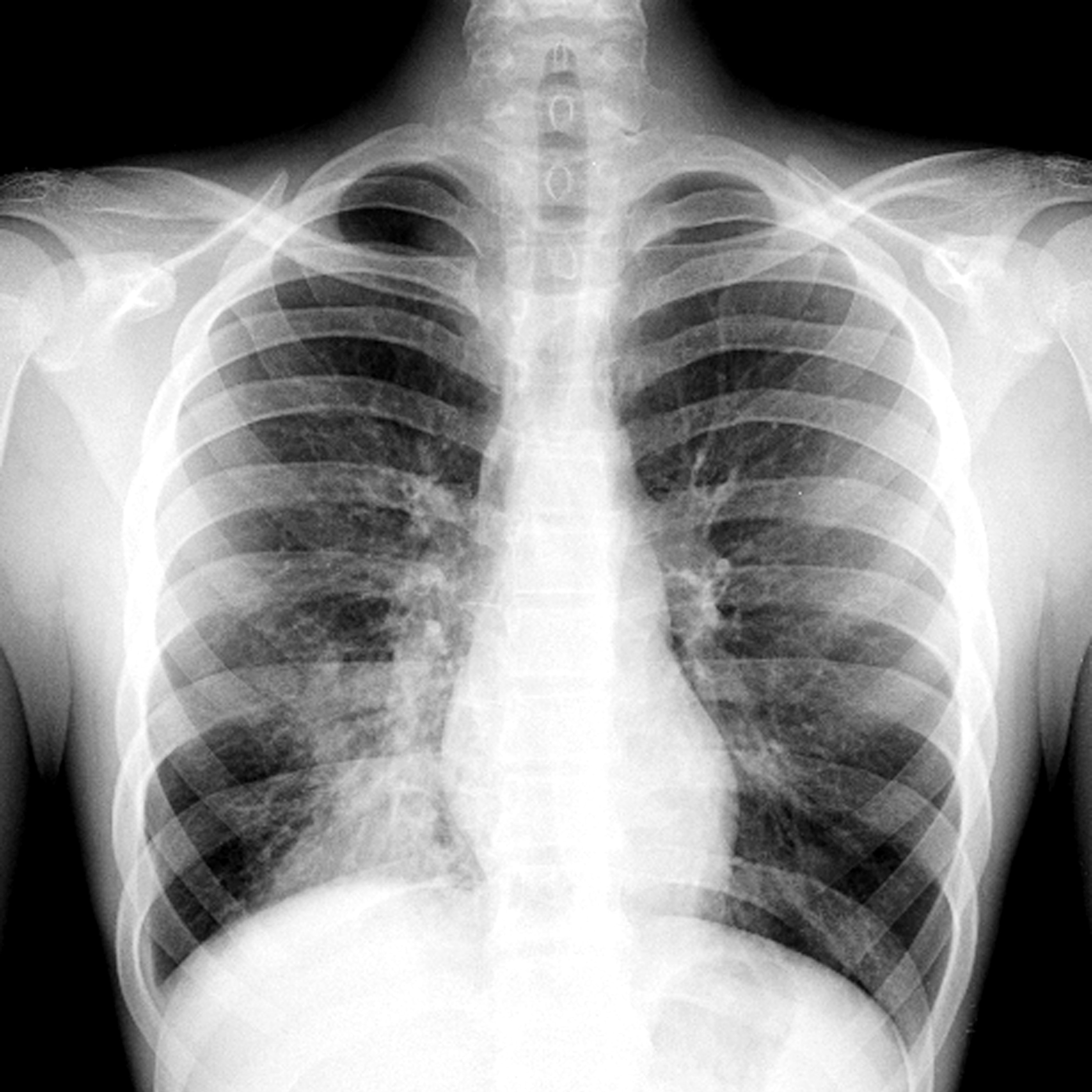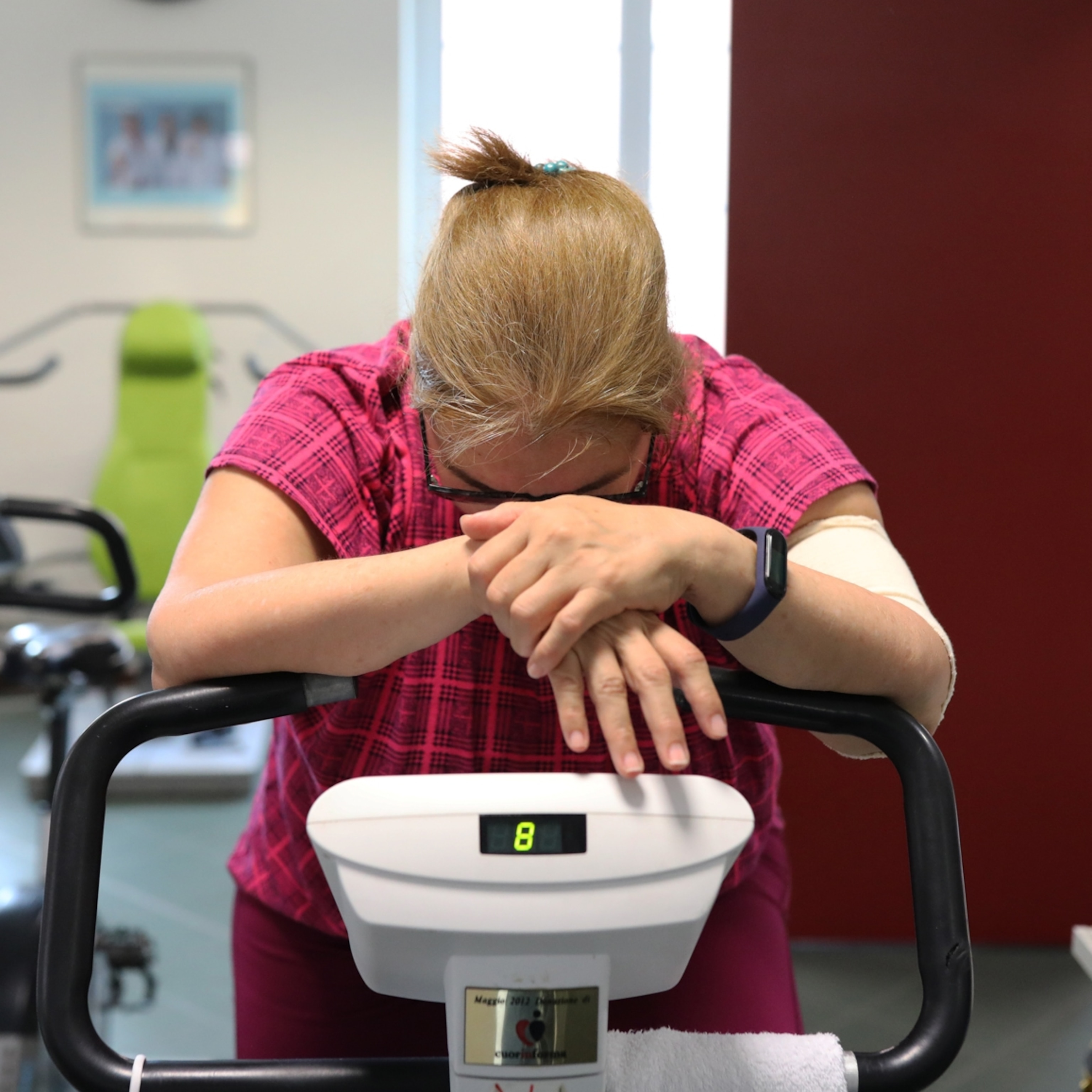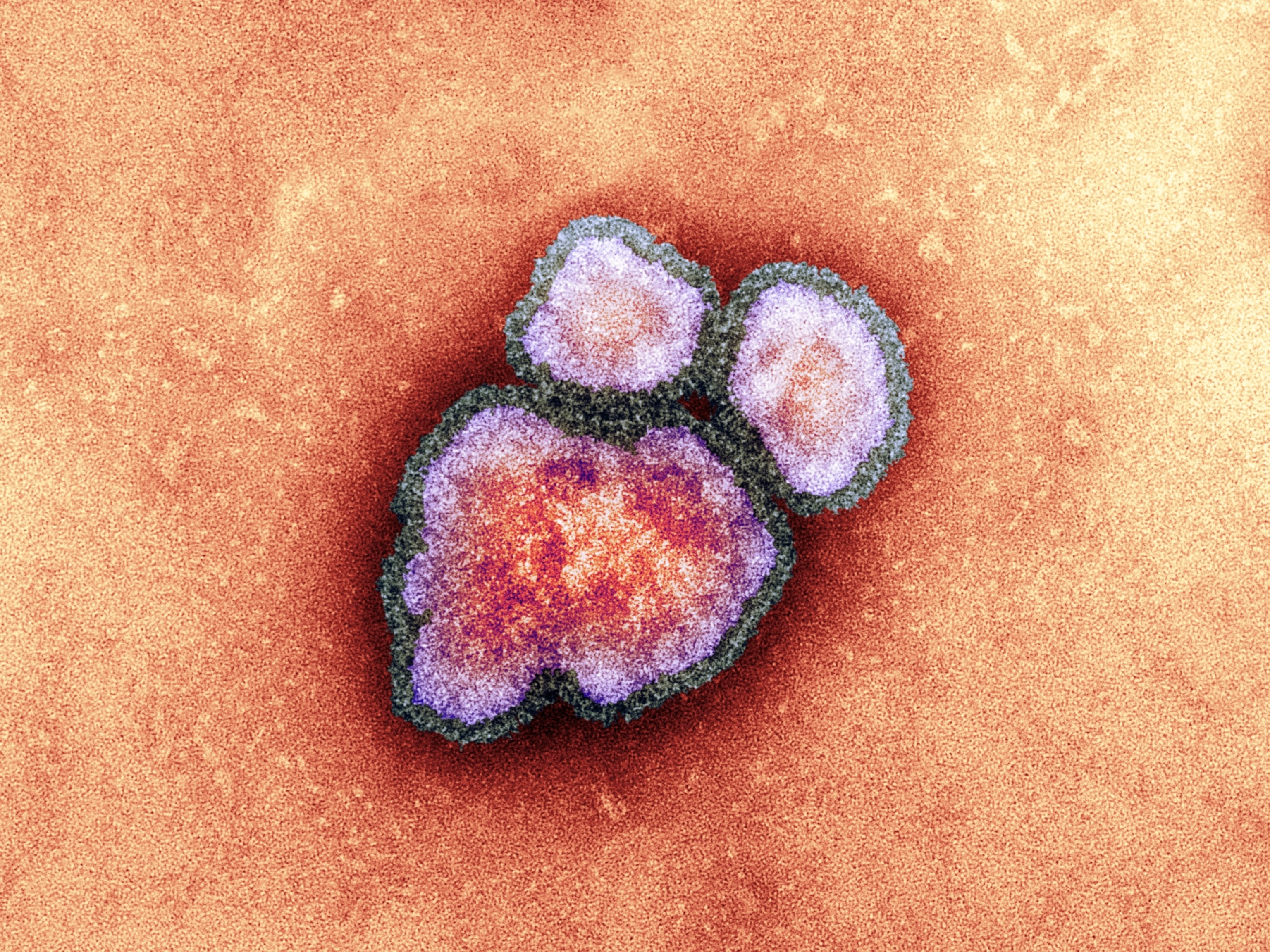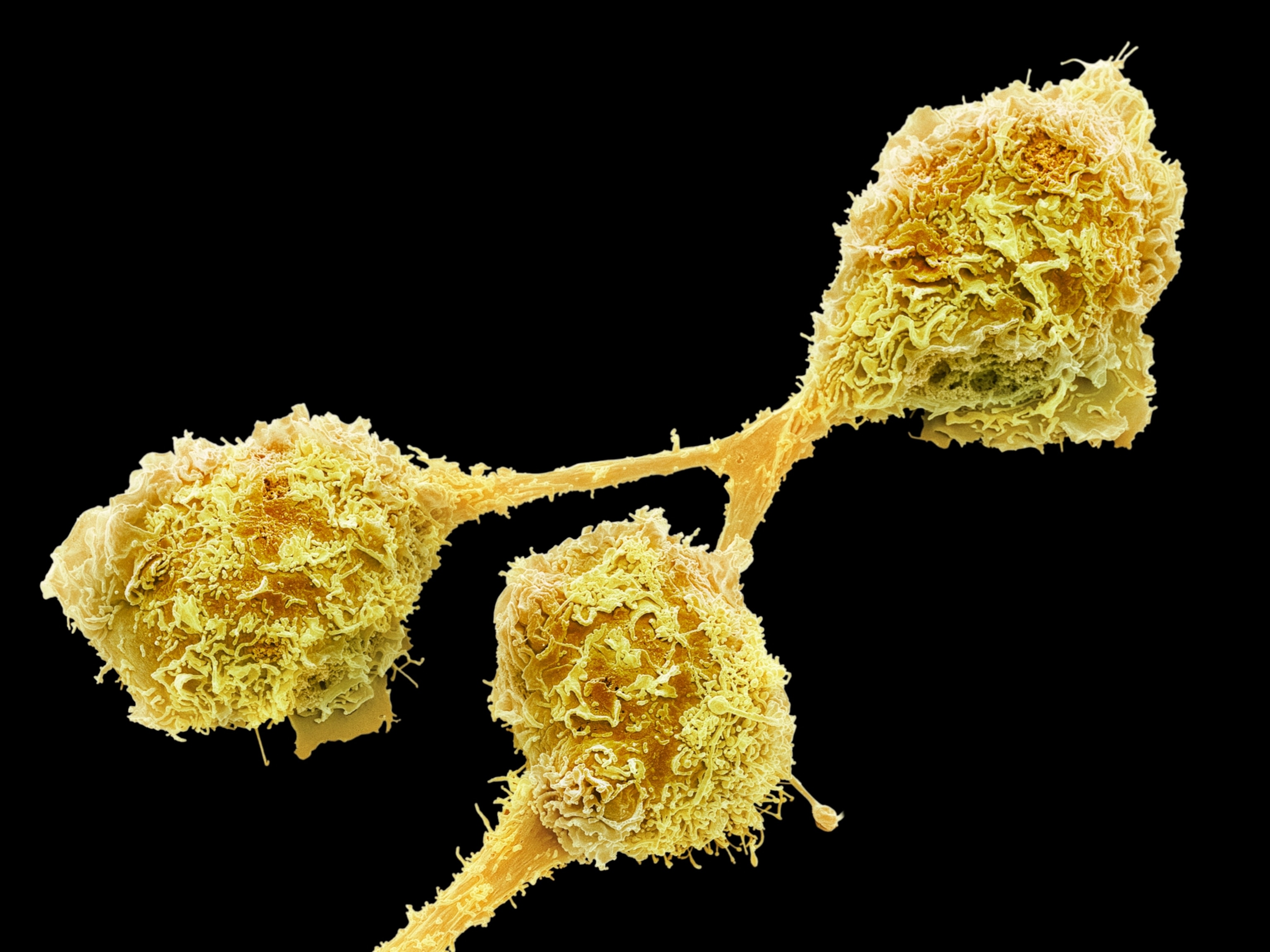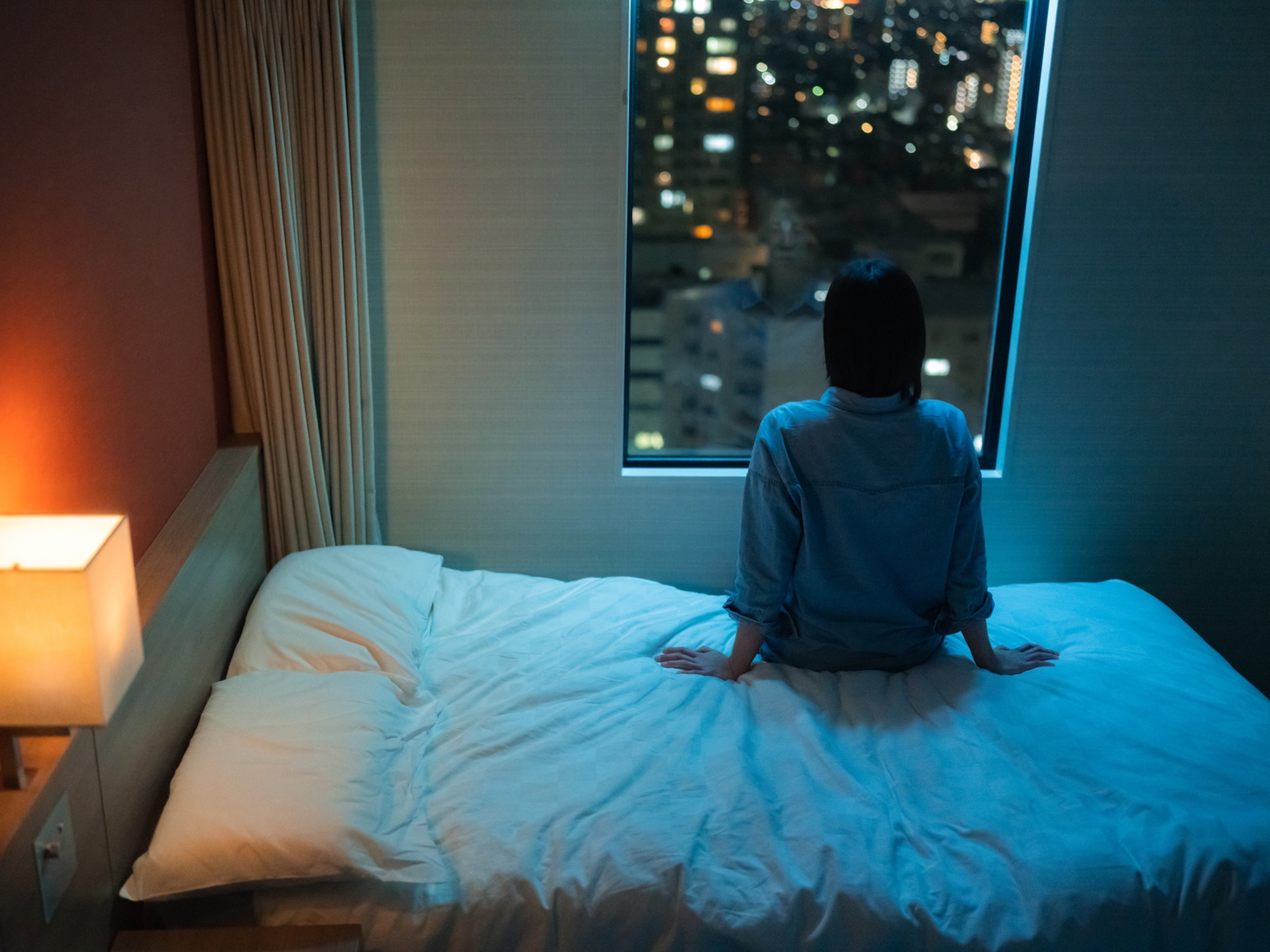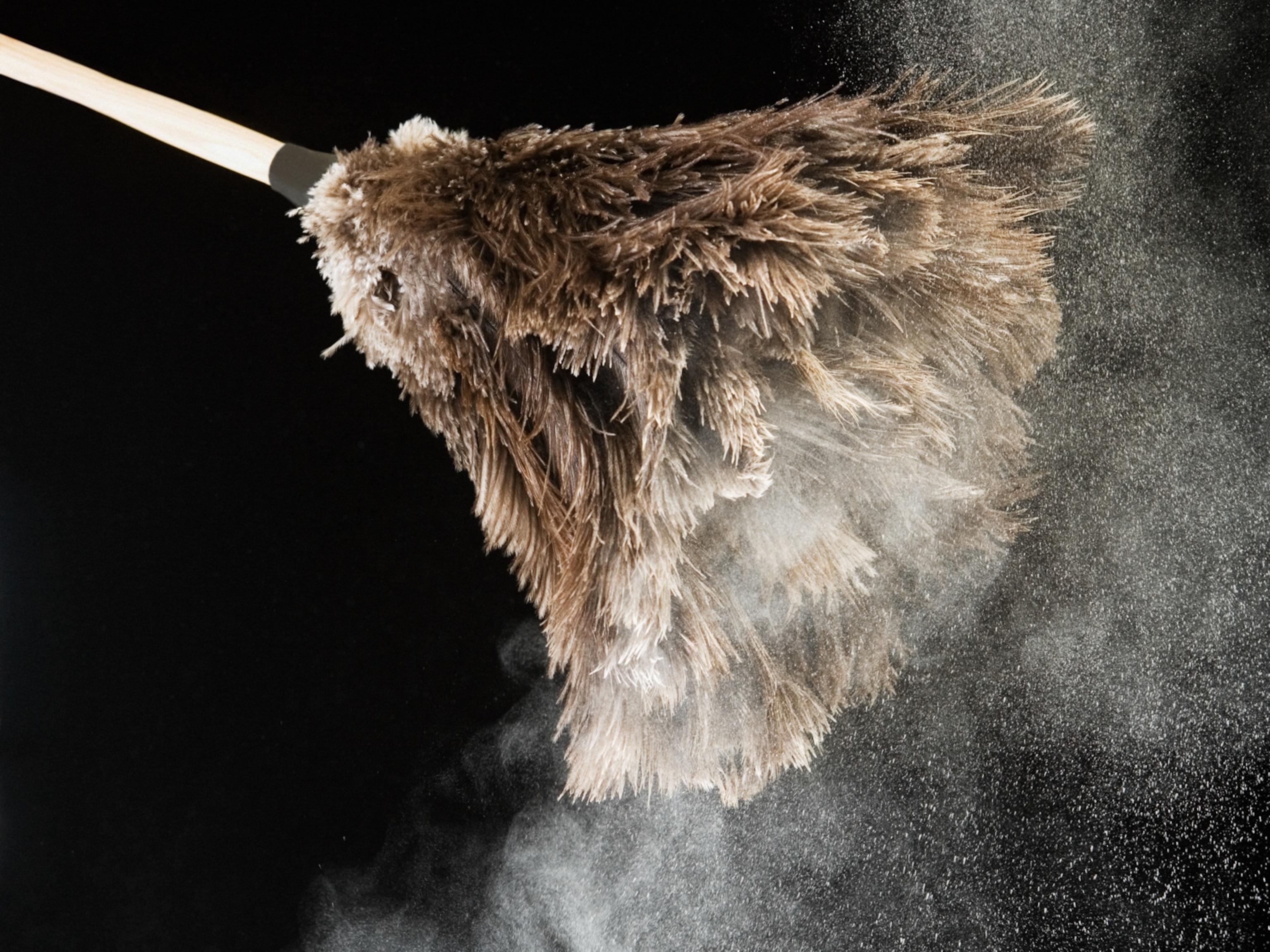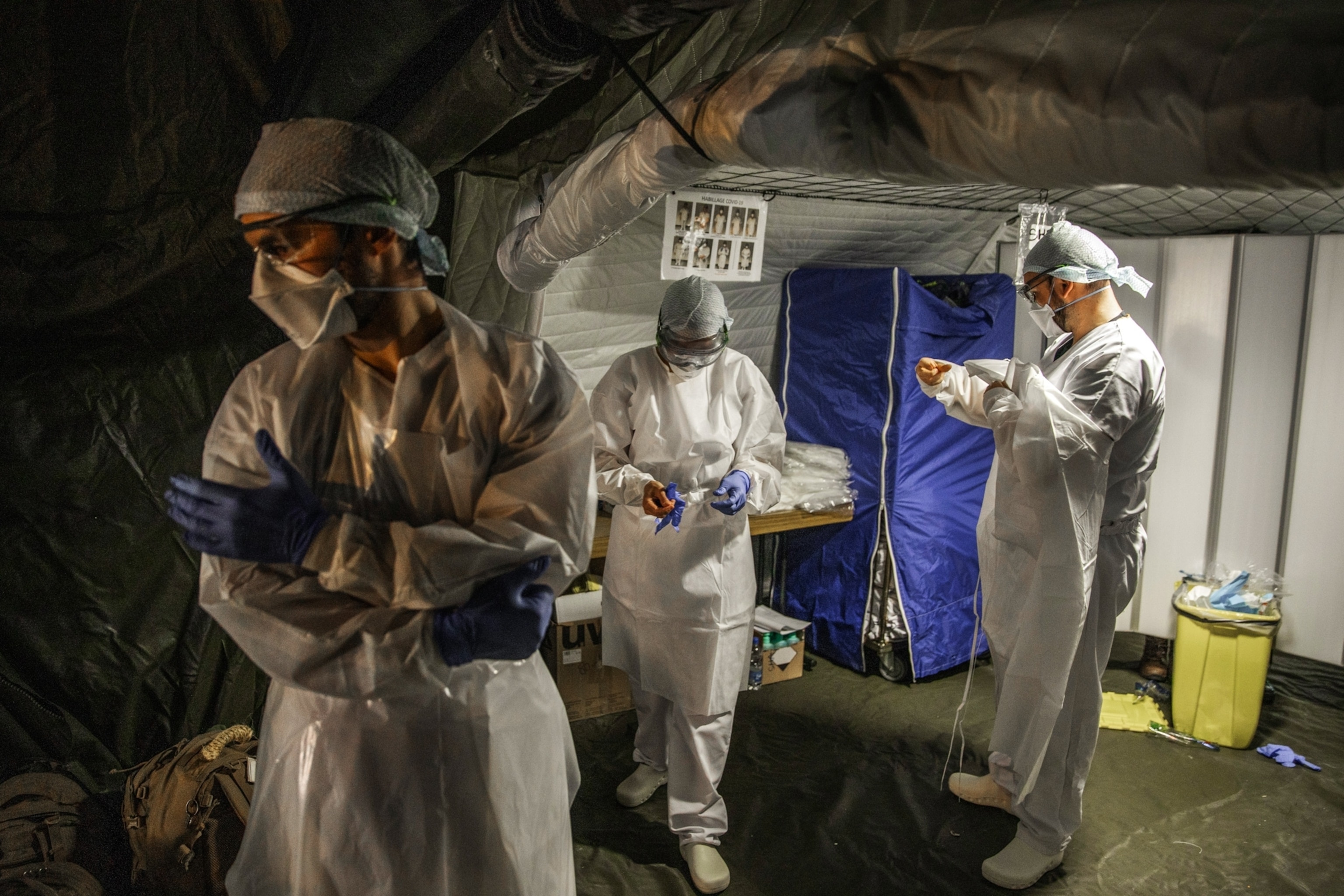
France’s paramedics and undertakers have a new role: helping families say goodbye
In Mulhouse, the country's first COVID-19 epicenter, responders on the frontlines are now the final connection between relatives and coronavirus victims.
The first funeral I photographed during the coronavirus crisis was for a woman named Marie Therese Wassmer. She was nearly 90 years old and was buried in a cemetery outside the small city of Mulhouse, an early flashpoint of the outbreak in France. Although she hadn’t been tested for the virus, she was buried like a victim. Neither her friends nor family attended the funeral for a variety of reasons, including the countrywide lockdown. As a priest and four undertakers laid her to rest in a sealed coffin, the undertakers adopted an unusual role: They prayed over her coffin. It was as though they were her family.
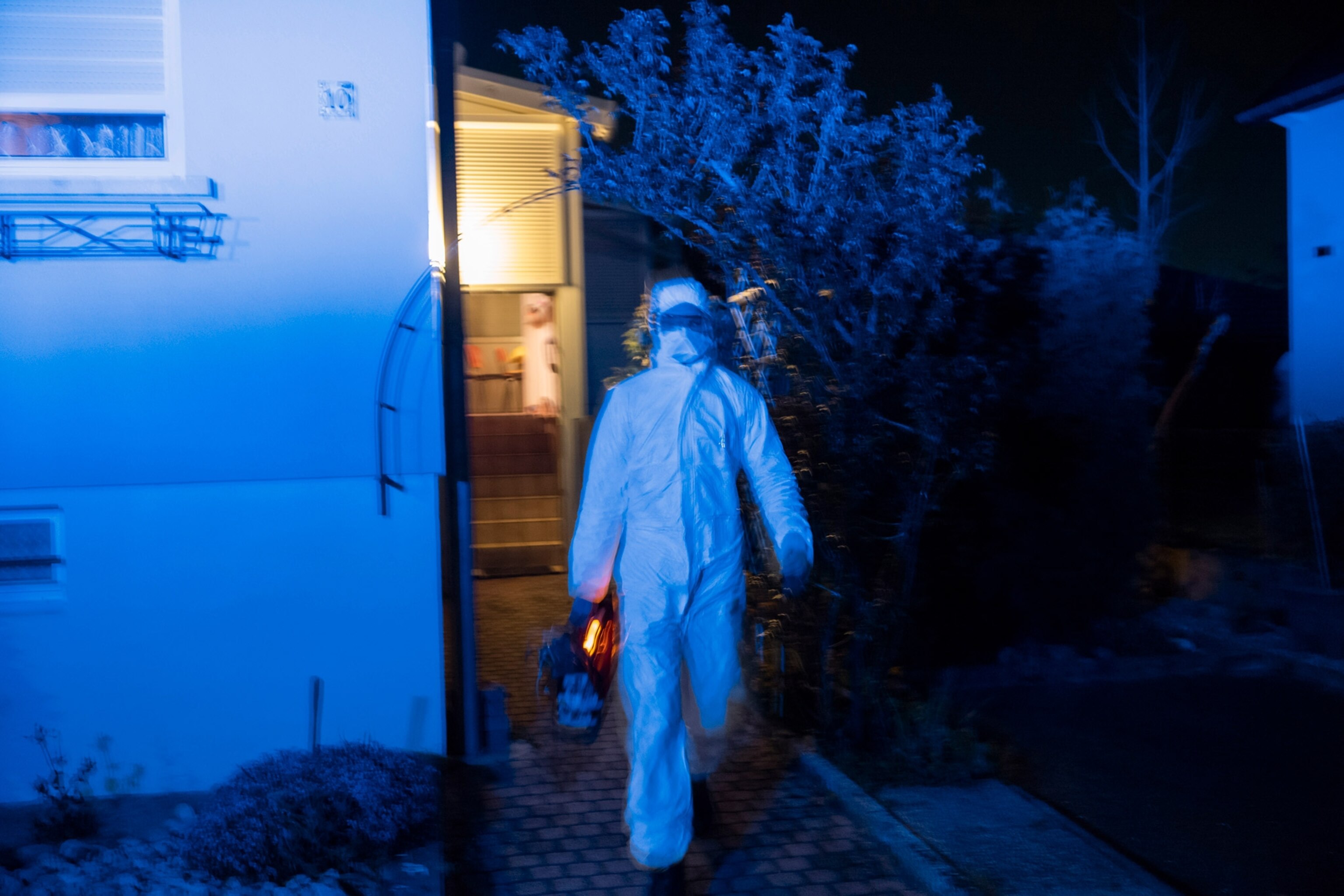
As France struggles to stanch a coronavirus pandemic that has killed 20,796 French citizens and infected 117,324, as of April 21, the country’s undertakers have become unsung superheroes who take care of both the dead and the living. Not only are they critical first responders, they’re also the last connection families have to loved ones. When the risk of contagion shuts relatives out of hospitals, morgues, and cemeteries, it’s the undertaker who consoles them and helps them say goodbye in other ways.
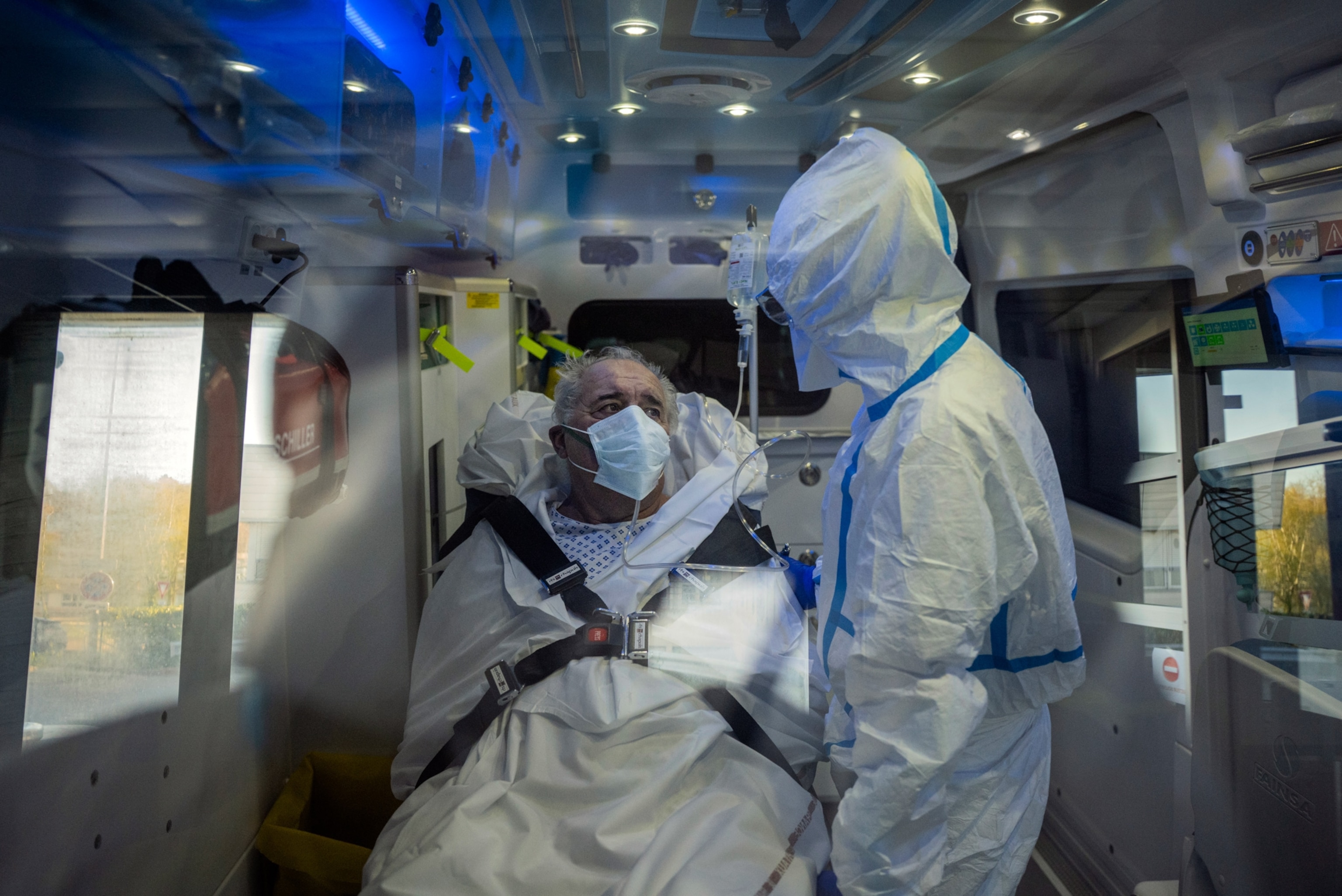
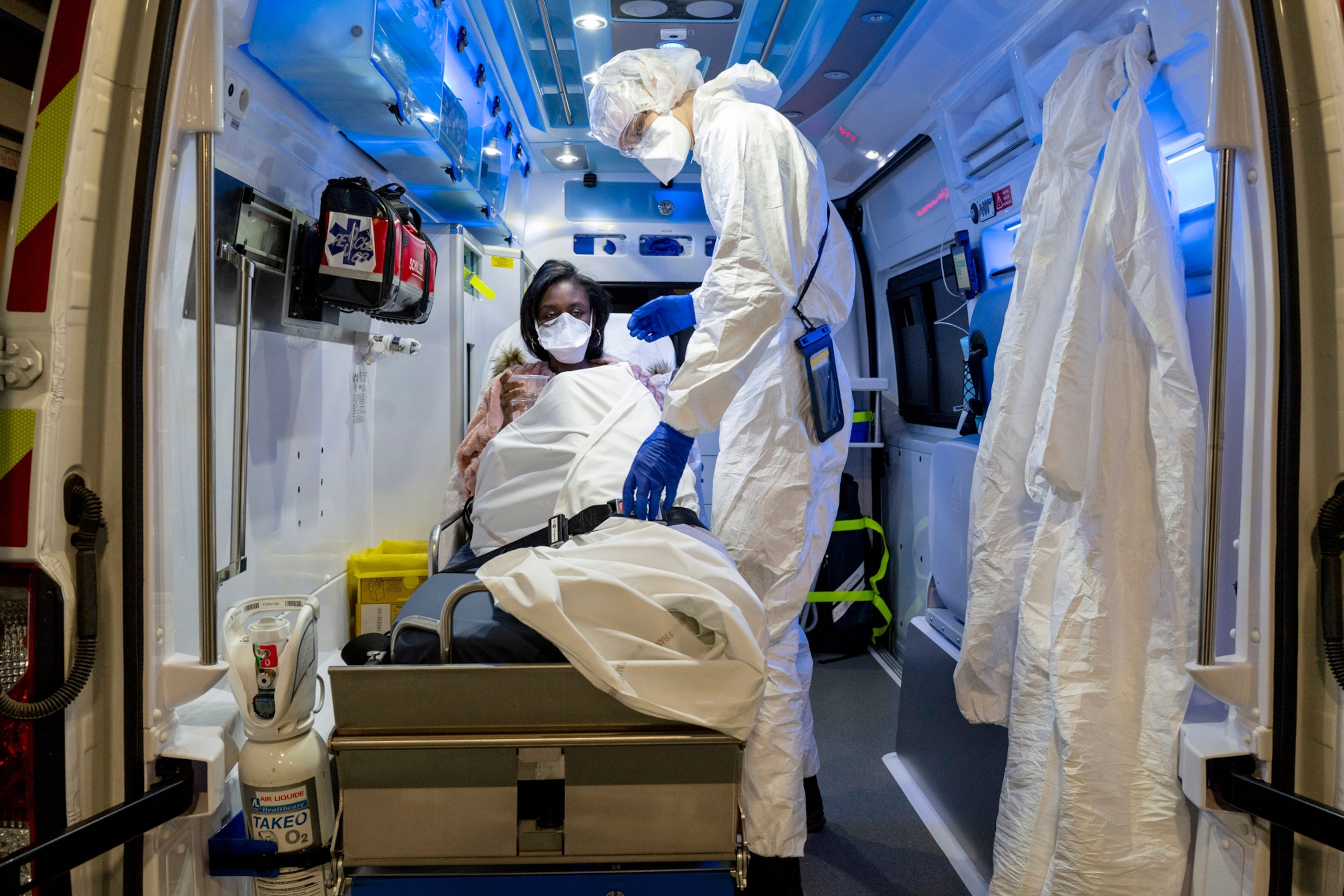
I saw this first-hand in Mulhouse, an industrial city located in eastern France, near the German border. There, a funeral company director named Jeremy Walter told me people have asked him to place letters from loved ones inside coffins. Recently, at the request of one distraught family, he said he took a photo of a man before his coffin was sealed. The last time they had seen their relative was weeks before at the nursing home where he lived.
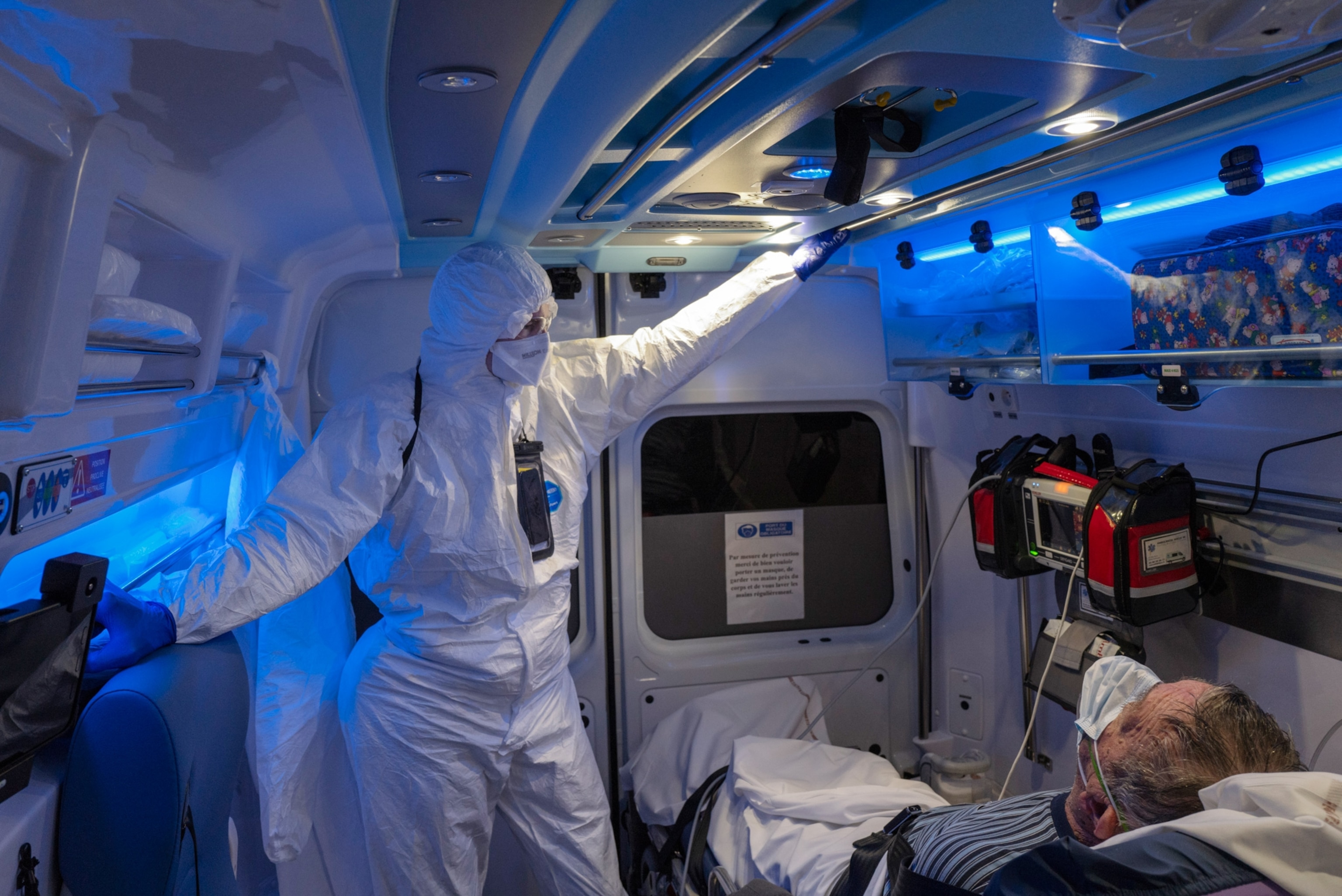
The pandemic arrives
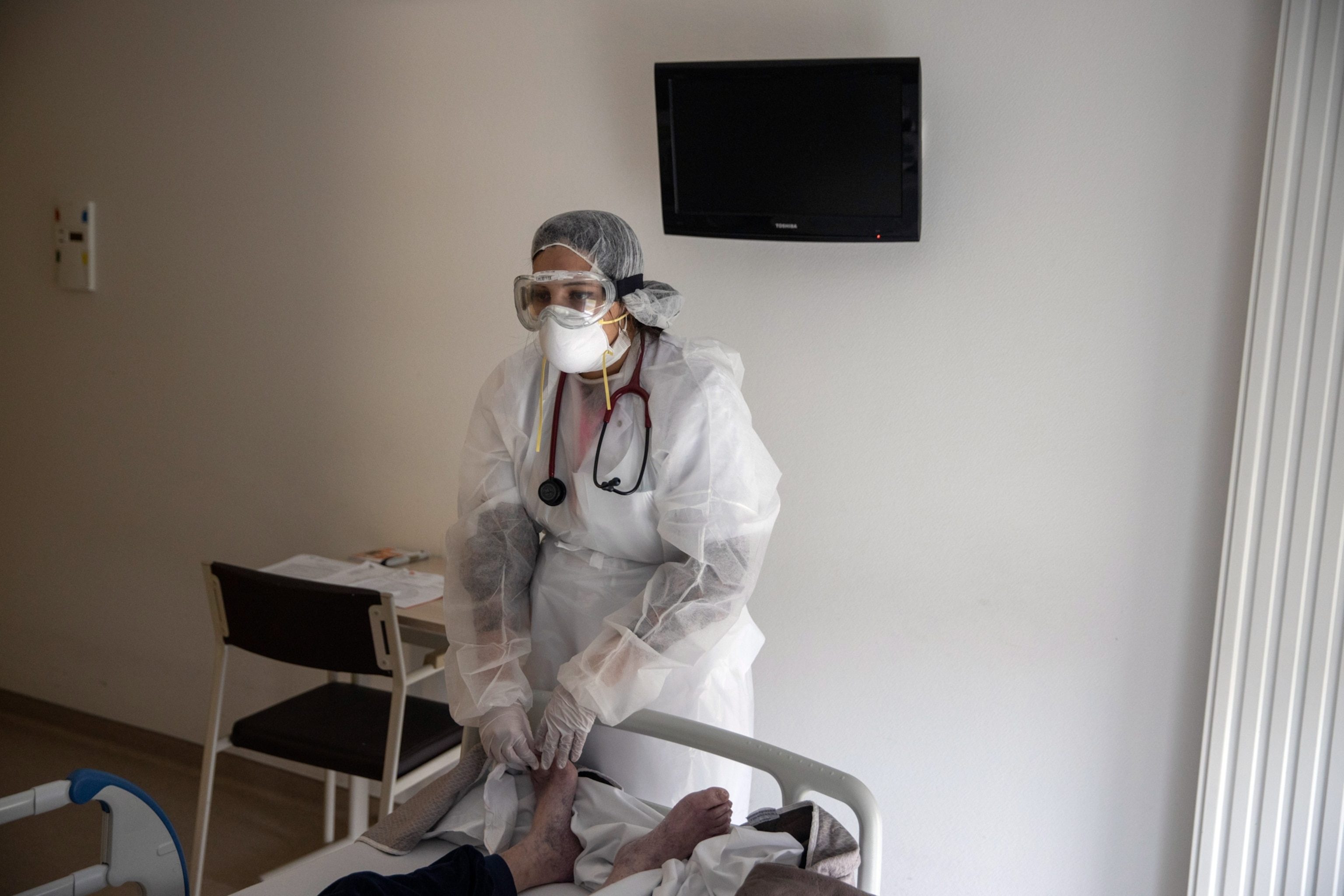
On Feb. 17, before public gatherings were banned, 2,500 people from around the world flocked to Mulhouse to attend an annual five-day evangelical conference at the Christian Open Door church. Soon after, Mulhouse had the largest cluster of coronavirus infections in all of France. The French health minister called Mulhouse “the tipping point” of the virus’s spread in the country. As of April 21, there have been 4,545 confirmed COVID-19 deaths in the region—second only to the area around Paris. (See pictures of a quiet, empty Paris under lockdown.)
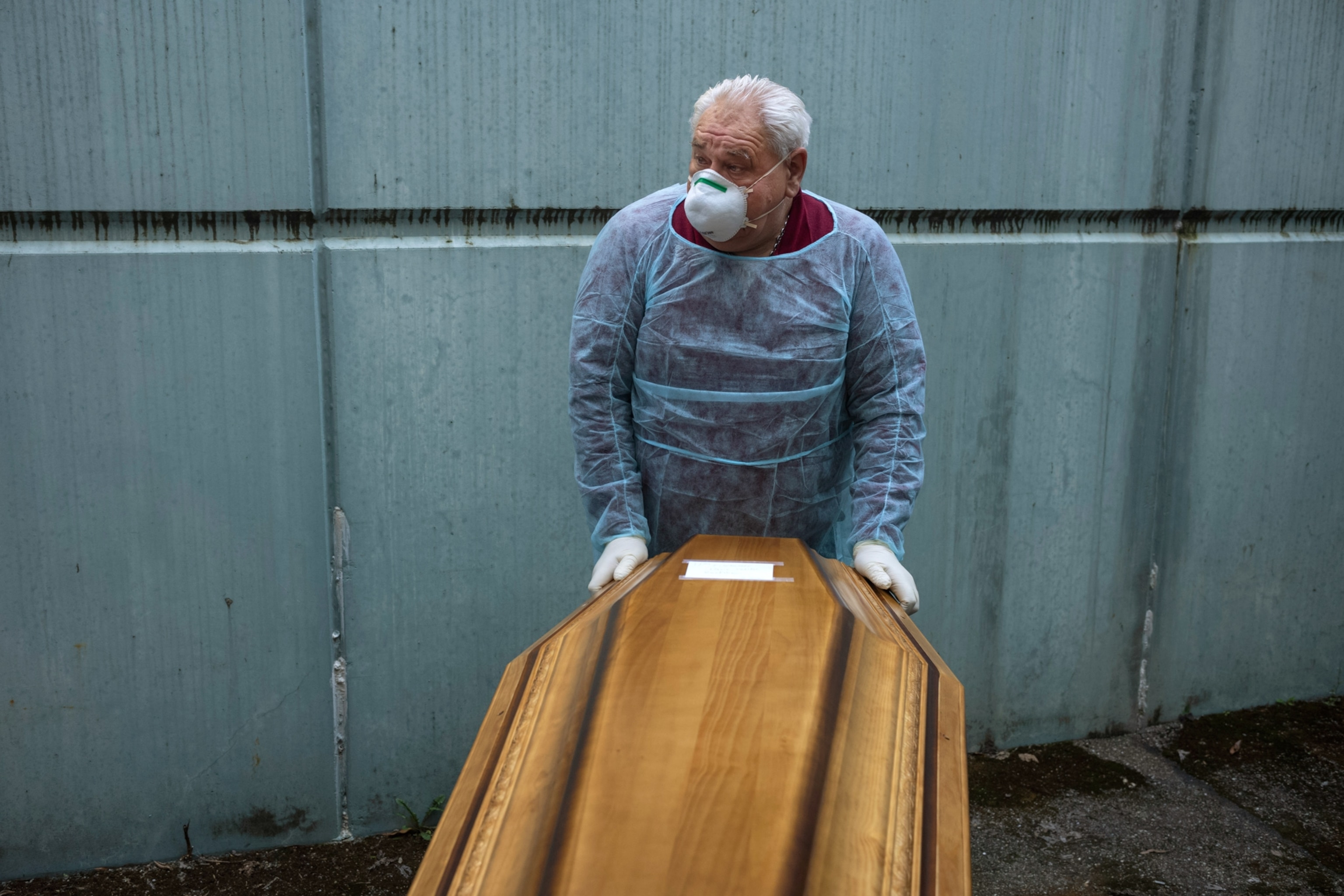
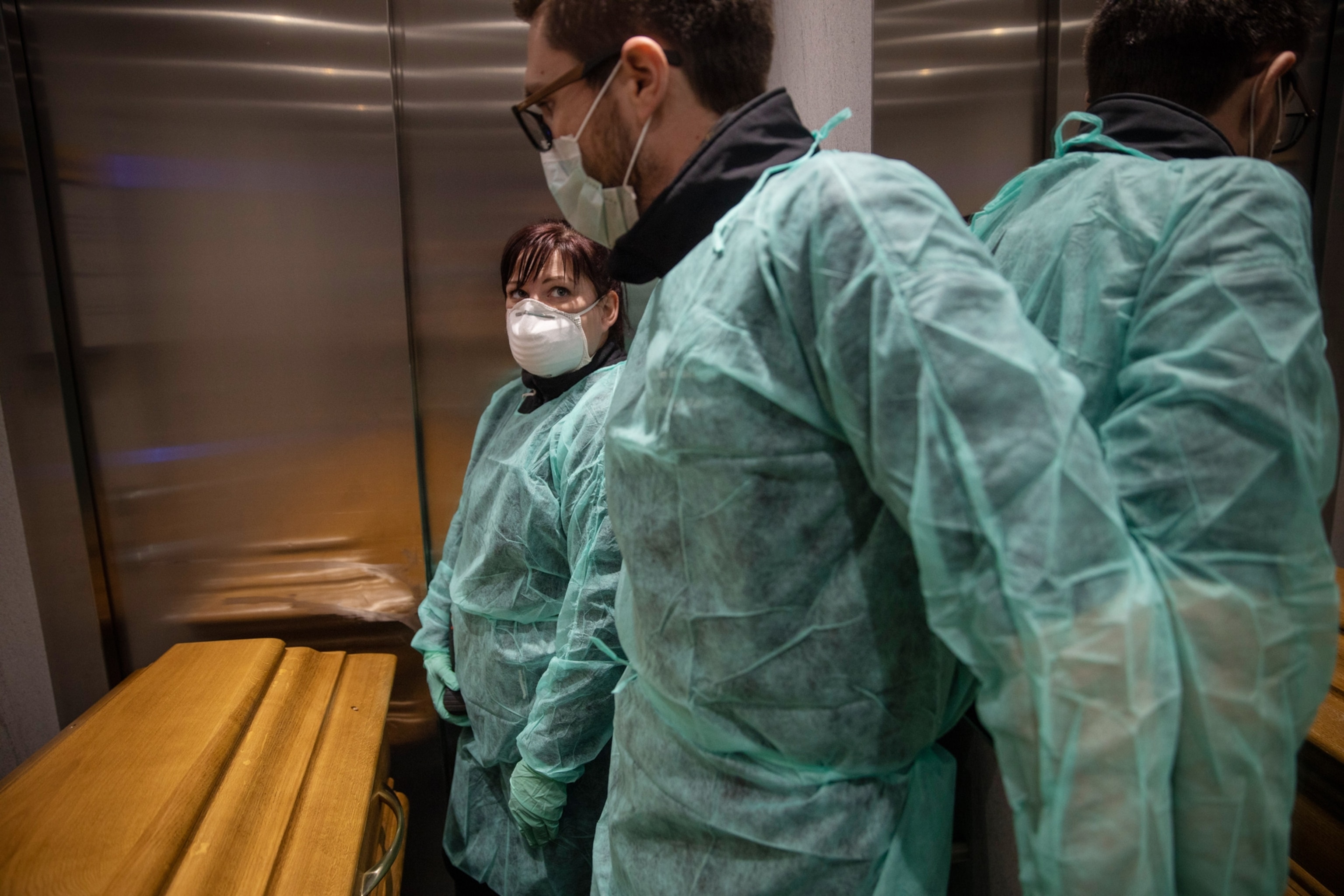
I came here from Paris in late March to document a field hospital the French army had set up. I drove more than 300 miles without seeing anyone. When I arrived in Mulhouse, the caseload was peaking. The region was so overwhelmed by virus cases that helicopters were transporting patients elsewhere in France and to Germany. The streets of Mulhouse were eerily empty. Only two hotels were open: one hosting military personnel and another hosting journalists.
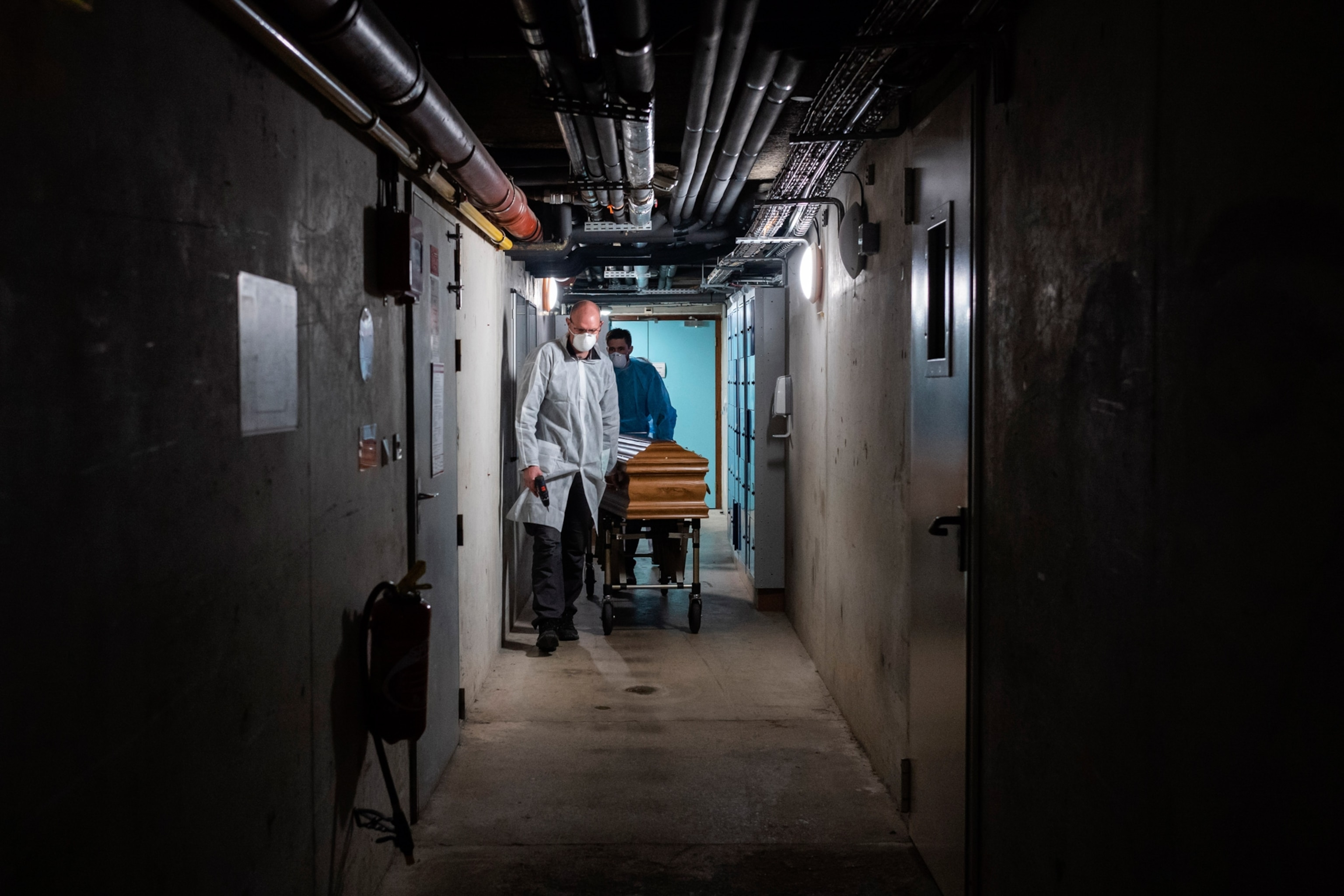
Barred from photographing anywhere other than the entrances at both the new military and public hospitals, I began to notice other people on the front lines, people we don't often talk about. I put on a mask and gloves and started following the undertakers.
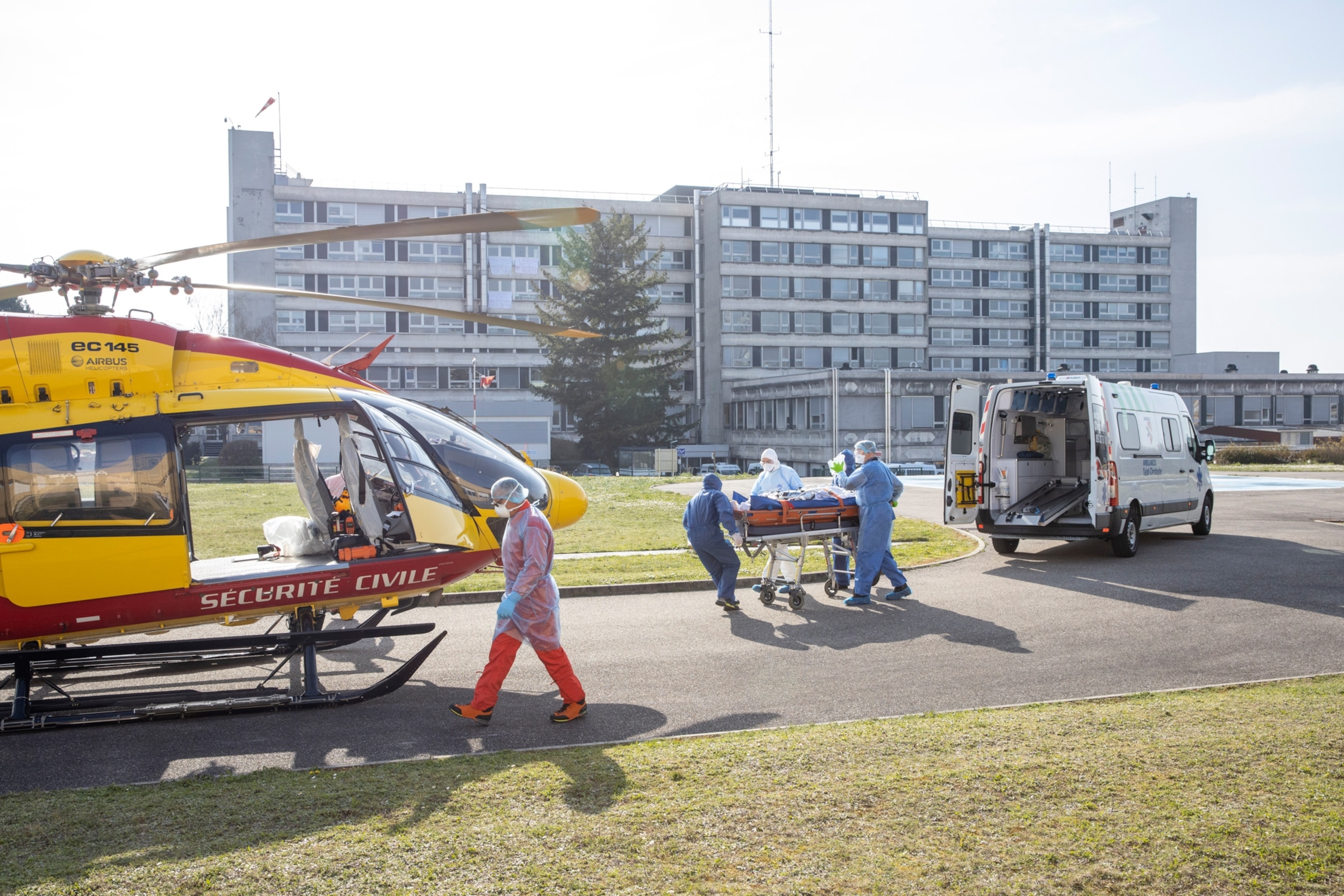
Outside of my father’s death in 2017, I had never had much contact with the men and women who run funeral homes. In Mulhouse, I saw people going above and beyond to do their jobs. In the face of a critical mask shortage, with no help from the government, they purchased their own personal protective equipment or received donated masks and gloves. They went into nursing homes, where hundreds were dying, to collect victims of COVID-19. Despite the precautions they took, some undertakers became infected—but not the ones I met.
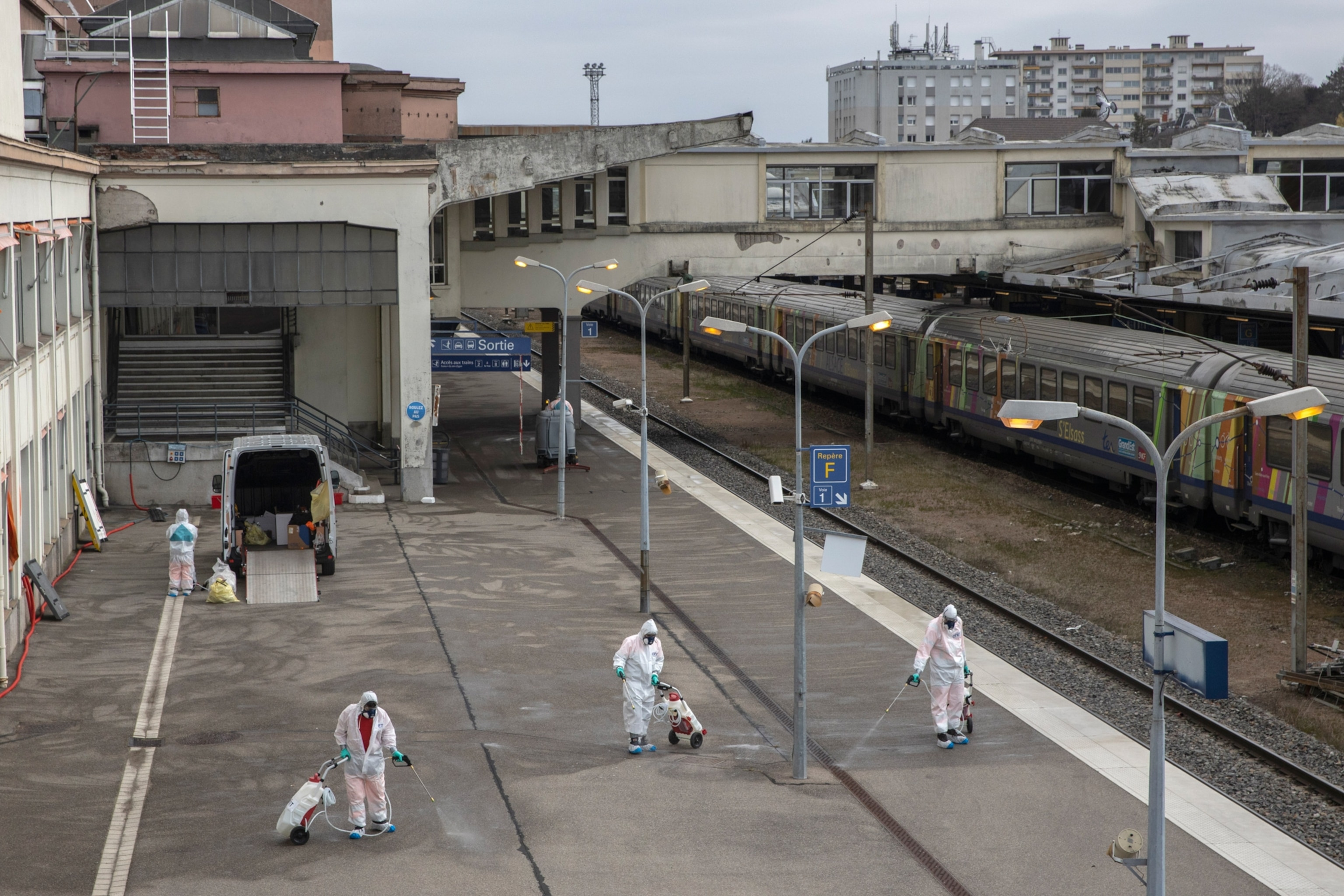
All the undertakers I followed were efficient and careful. They put on gloves and a mask before placing a body inside a fully disinfected coffin. Only after they closed the lid did they remove their personal protective equipment. For COVID-19 cases, a police officer or the mayor must secure coffins with a non-removable sticker or a wax seal. Once it’s closed, it cannot be reopened. At funerals, no more than 10 people can gather. With four undertakers and a priest, that leaves only five family members who can mourn at the gravesite. (Here's how these restricted funerals are impacting our ability to mourn.)
Undertakers and paramedics
The Hauptmann funeral home that Jeremy Walters directs is a small operation based in Cernay, just outside Mulhouse. In addition to working tirelessly since the beginning of the crisis, Walters also volunteers as a firefighter.
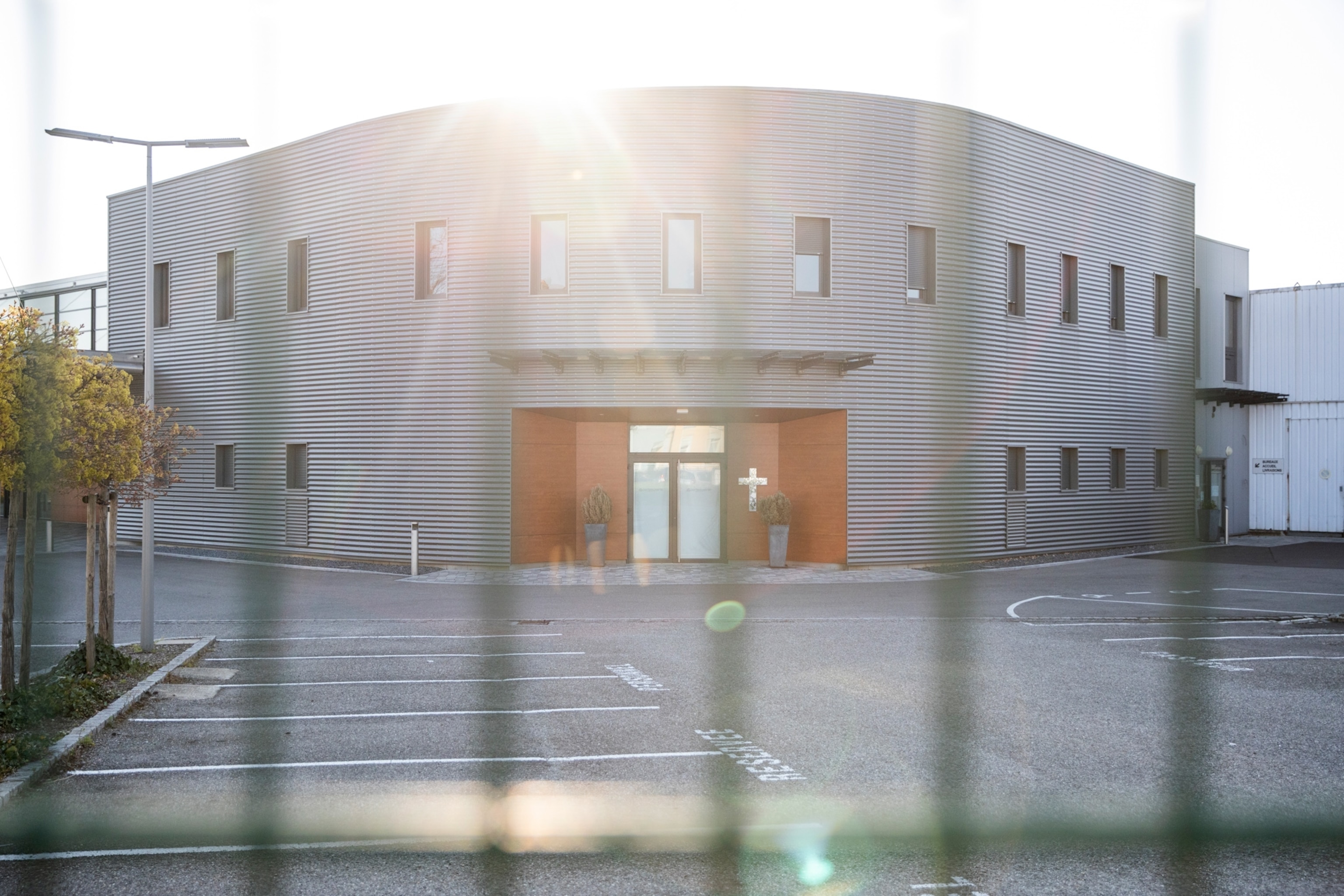
Inside the Hauptmann funeral home, rooms that were used for private family viewings now serve as storage for an overflow of coffins. Each room holds a dozen or more coffins, with most containing coronavirus victims. The air conditioning is set to the max.
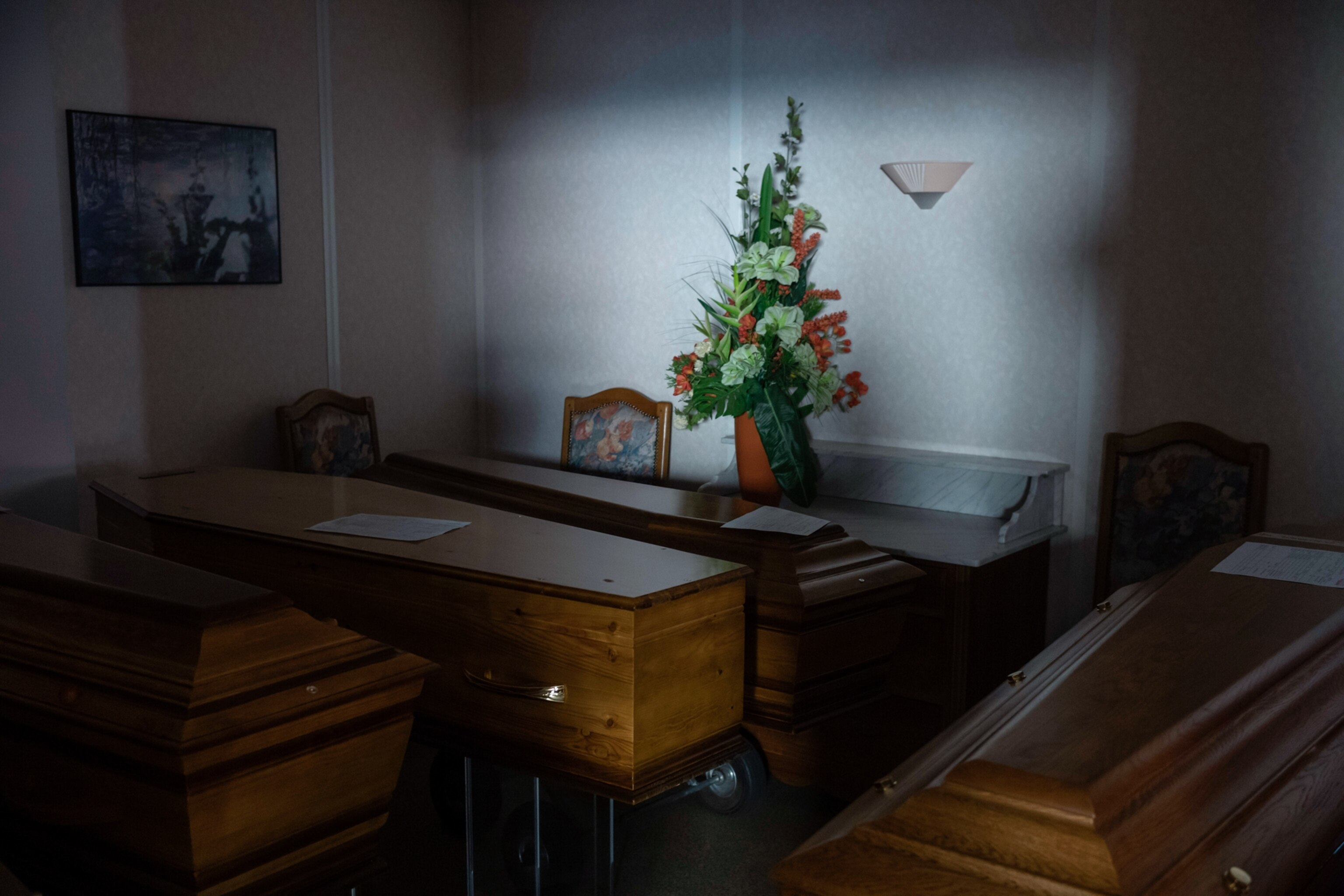
We often think of undertakers as sober, stone-faced people. To the world, they’re invisible until they’re needed. Even then, we don’t know the full extent of the work they do. The truth is, those who care for the deceased are feeling the effects of the coronavirus pandemic just as much as everyone else, perhaps even more so. An undertaker named Catherine Pereira told me she can longer touch her eight-year-old son when she gets home from work; it’s too risky. Her voice broke as she said that.
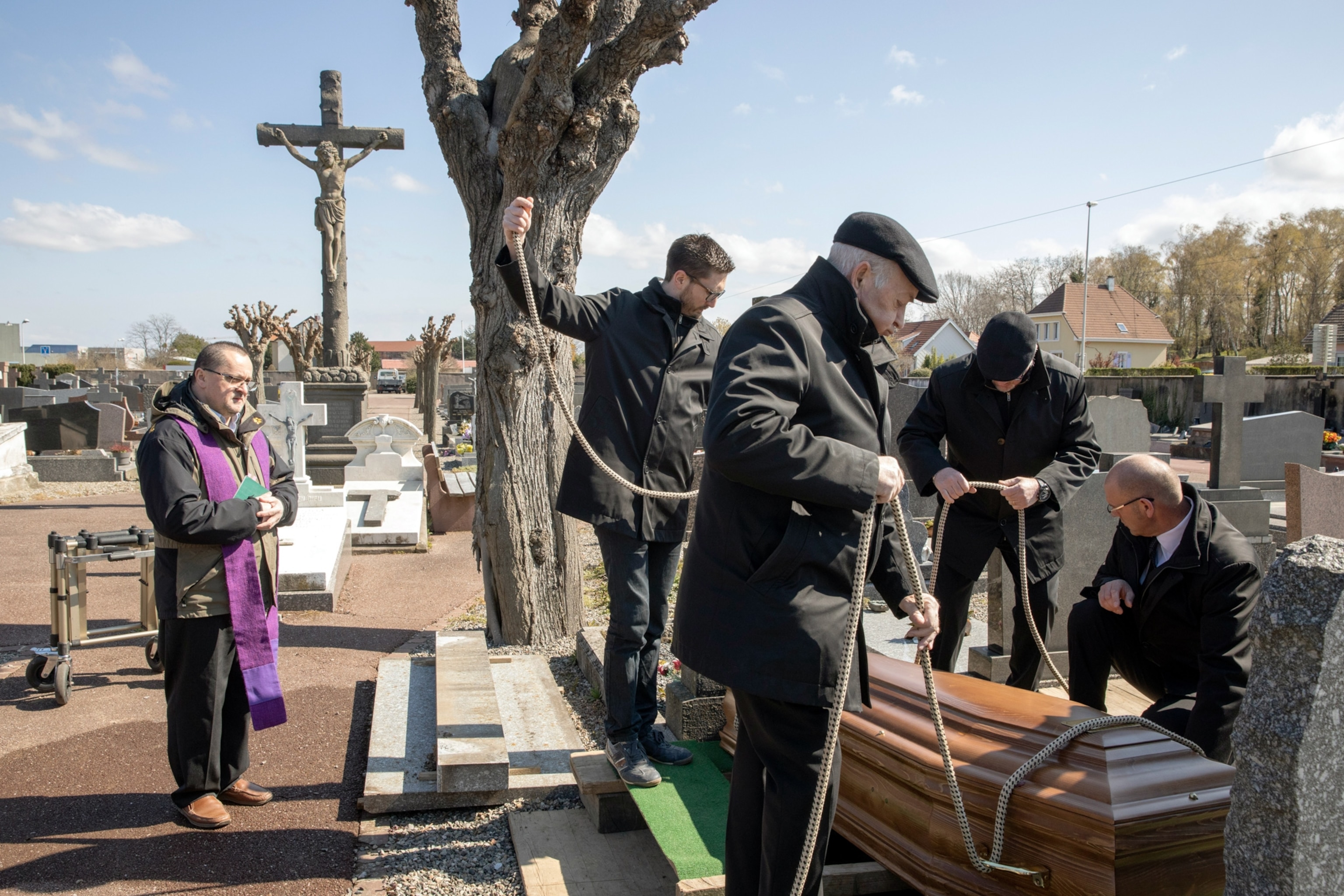
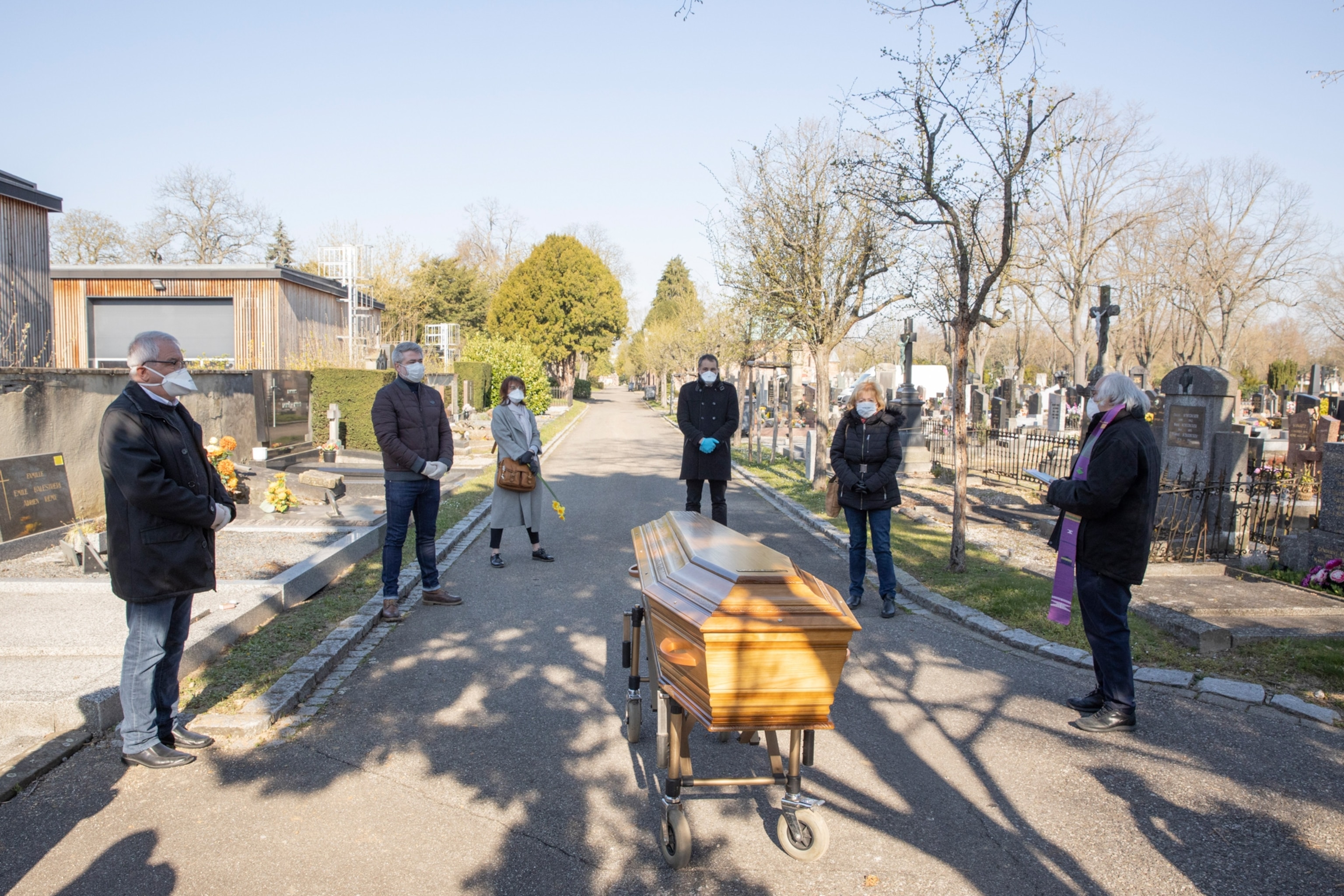
During my time in Mulhouse, I also got to know paramedics. Like undertakers, these first responders are exposed to the virus every day and receive no guidance from the government on how to protect themselves. And yet they’ve maintained their humanity and professionalism under extreme conditions.
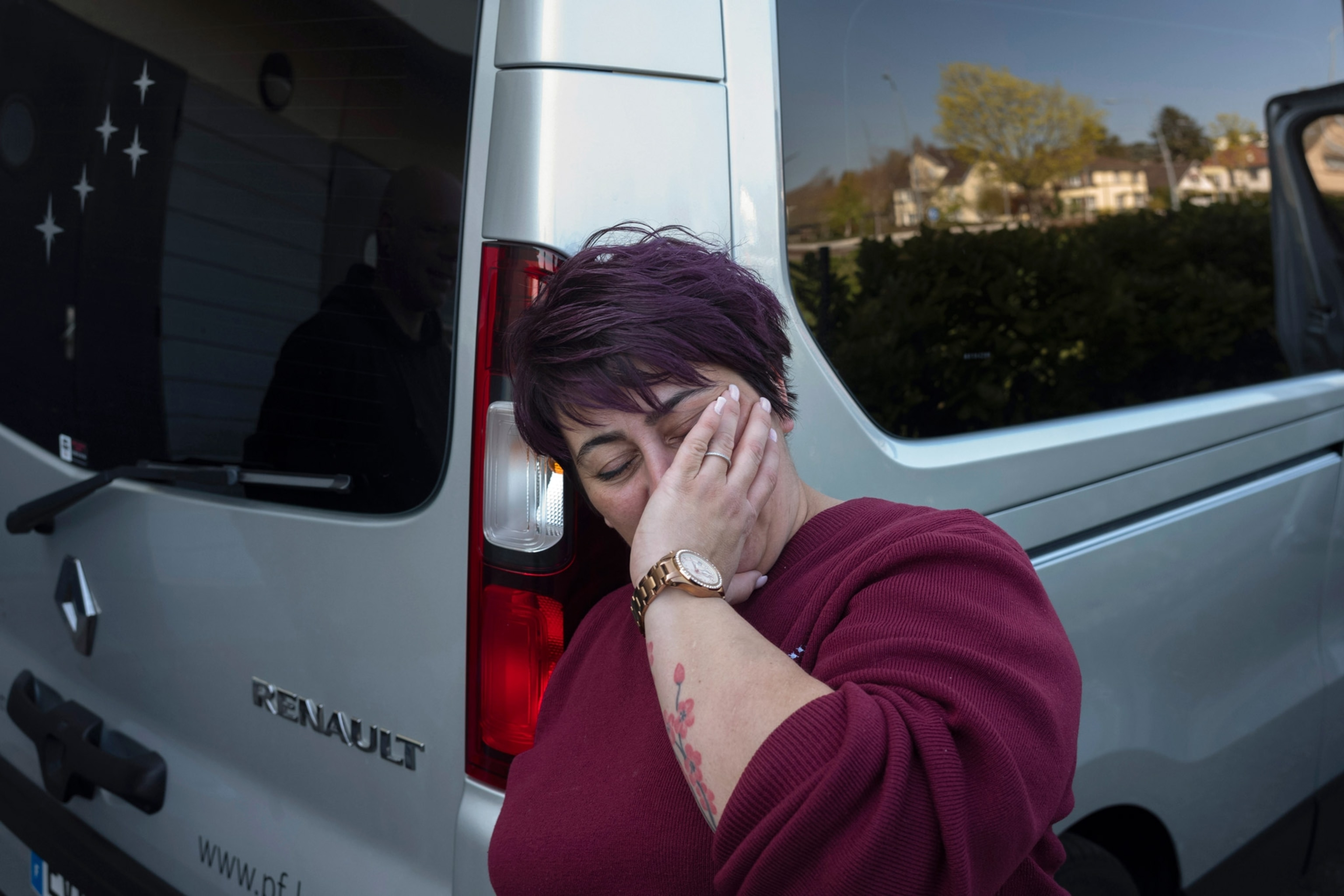
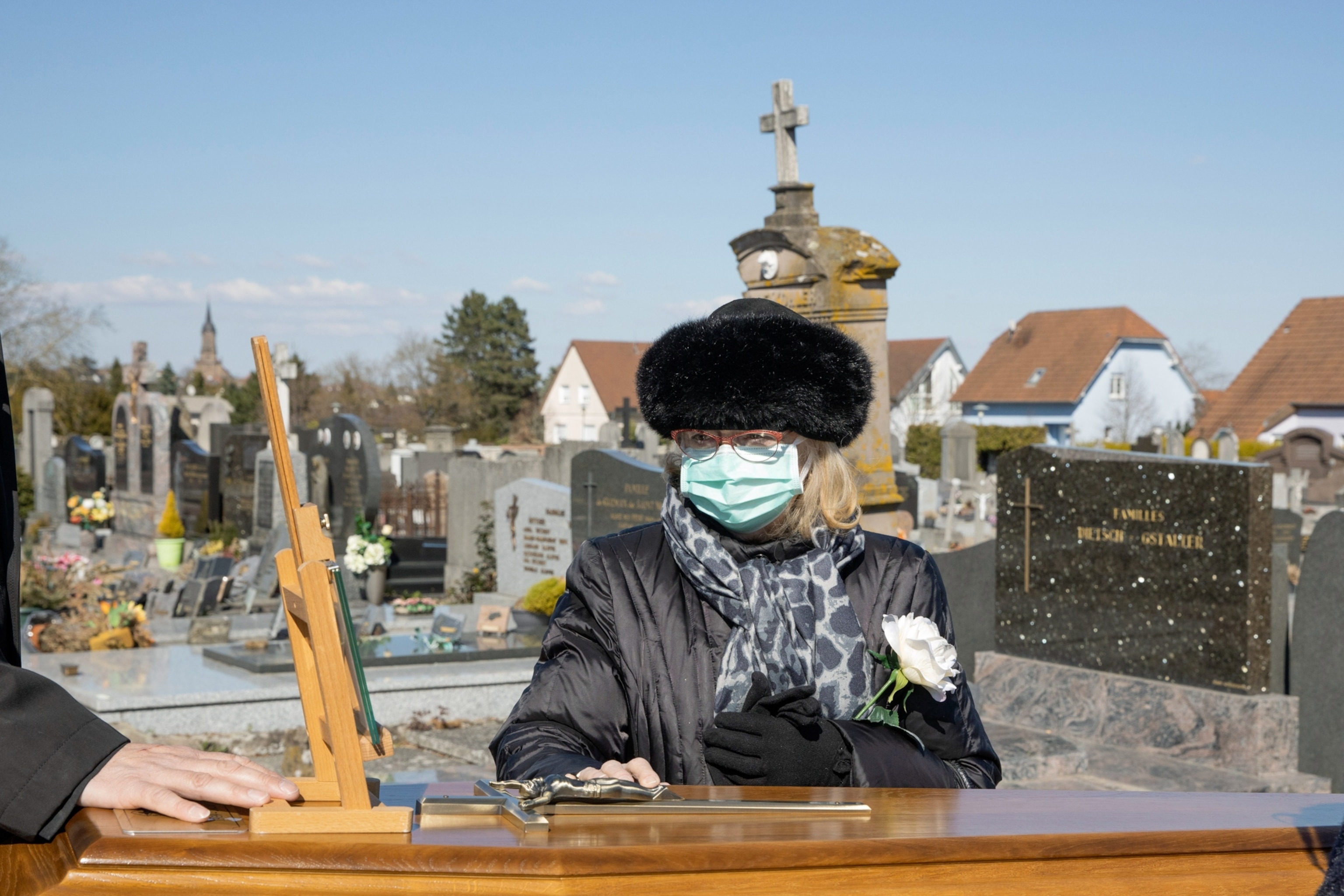
Late one night, I joined a paramedic team answering a call out in the country. The patient was a man in his 80s suffering from a fever near 106 degrees Fahrenheit. It was definitely a COVID-19 case. Though his daughter couldn’t ride with him to the hospital, the paramedics allowed her to come inside the ambulance to say goodbye. She might have been seeing him for the last time. At his age the chance of dying is high. (These underlying conditions can make coronavirus more severe.)
As I watched the paramedics that night, I thought about what I’d heard about the hospitals in France. So many patients are dying that doctors are forced to prioritize younger patients over older ones. If this man needed respiratory assistance, I don't think he’d receive it. I don’t know what happened to him.
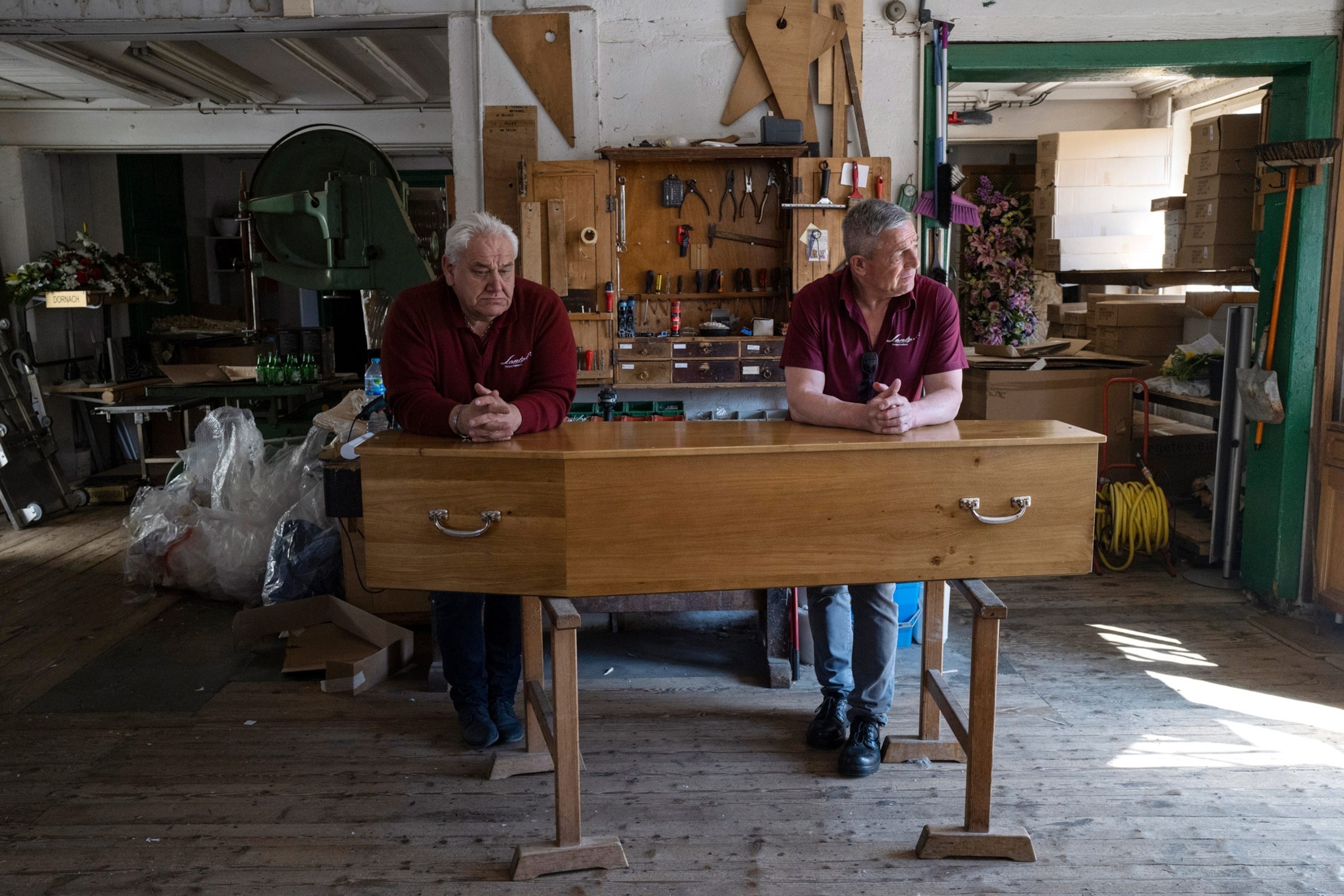
Home again
After spending nearly two weeks in Mulhouse, I’m back in Paris. The lockdown in France has been extended until May 11 and may be extended again. When I got back from Mulhouse, the daily death toll was at its highest since the start of the outbreak in France. But the number of infected people admitted into intensive care at hospitals is getting lower. The caseload in Mulhouse is also much lower, and Paris is just a couple weeks behind.
It’s been five weeks since France’s shelter-in-place order was instituted, and many Parisians are feeling the financial pain. At first there was a spirit of togetherness and solidarity in the streets. Now I sense suspicion and distress in those around me. I wonder how long it will be before things feel normal again. As I walk through my mostly empty neighborhood, I take in the trees blooming in empty parks and realize we’re having one of the most beautiful springs I’ve seen in a long time.

